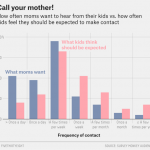
1
It’s Alan Turing’s birthday! Google has a nice outline of his life and work for you to check out, and a ribbon-style Turing machine on the Google.com homepage that lets you get an idea for how to do read/write instructions. (I got sloppy (I’ve only got so much time in theis Starbucks) and accidentally programmed an infinite loop, but luckily Google made sure to include a break).
10
The definite highlight of my first CS class at college was finding out we would write a ribbon-style Turing machine (just like the one Google did graphically) in Scheme. Ok, second-best highlight. The real highlight was when it worked. (Capering may have been involved, though I managed to restrain myself from calling my parents to boast until the sun had risen).
11
Of course, you don’t have to build your Turing machines from Lisp dialects (but I prefer to, as a lover of parentheses). You can build them from Legos.
100
Though, of course, if you want to see a Turing machine a little closer to hand, you’re already looking at one! (Assuming you haven’t printed out this blog post). The reason people get excited about building these in the first place is that a Turing machine is a universal computer. That means it can simulate any algorithm that can be done on any other kind of computer. So everything you’re looking at could be computed and summarized by one of the tape machines you saw above using just a few types of commands.
101
If you’re a regular reader of this blog and not yet in the math-y faction, you may hear about Turing mostly in the context of Turing Tests (ideological or otherwise). Well, it turns out Bryan Caplan isn’t the only person to come up with the idea of an Ideological Turing Test. At Cardiff University, they’ve been doing a series of interesting experiments, as detailed by the Atlantic.
In the 2000s, however, Collins, together with colleagues at Cardiff University, tried new Imitation Games to study three things: 1) whether color-blind people could pass an imitation game as color-perceivers, 2) whether those without perfect pitch — the ability to recognise and name a musical note just as most of us can recognise and name a color — could pretend they had perfect pitch, and, 3) whether the blind, proper — at least those who had lost their sight in early childhood — could pretend to be sighted. The new subject matter gave rise to interesting results that followed a particular pattern.
Consider the blind. They spend their whole lives immersed in sight-dominated societies that speak sight-dominated languages. Based on interactional-expertise theory, their exposure to this language should enable them to make the same judgments as sighted people, even where they are discussing things they have never seen, such as the bounce of a tennis ball, its relationship to the line and how hard it is to call it ‘in’ or ‘out’. By contrast, because sighted people lack immersion in blind society, their attempts to pass as blind should come across as more caricatured than authentic. Rather than extrapolating from blind people’s actual discussions of their experiences, sighted people are inclined to imagine by subtraction, guessing, unconvincingly, what it would be like to go through life without seeing.
The other cases yielded similar results: the color-blind were better able to pass as color-perceivers than vice versa, while those with perfect pitch were better able to pass as those without perfect pitch. The reversal of polarity when the color-blind were compared to the pitch-blind was exactly what would be expected. These experiments were a proof of concept, establishing the Imitation Game as a research tool that can reveal interactional expertise in action.
In more recent experiments, it turns out it was a lot easier for students to pass as gay than Christian.
110
C’mon, you’ve got to be a little tempted to learn computer science by now? You might not be moved by my recent conversion, but perhaps you’re a little moved by my proselytization on this topic?
I’m not asking for a profession of faith, just that you browse the course catalog at Udacity and Coursera, and maybe check out the intro CS class.











